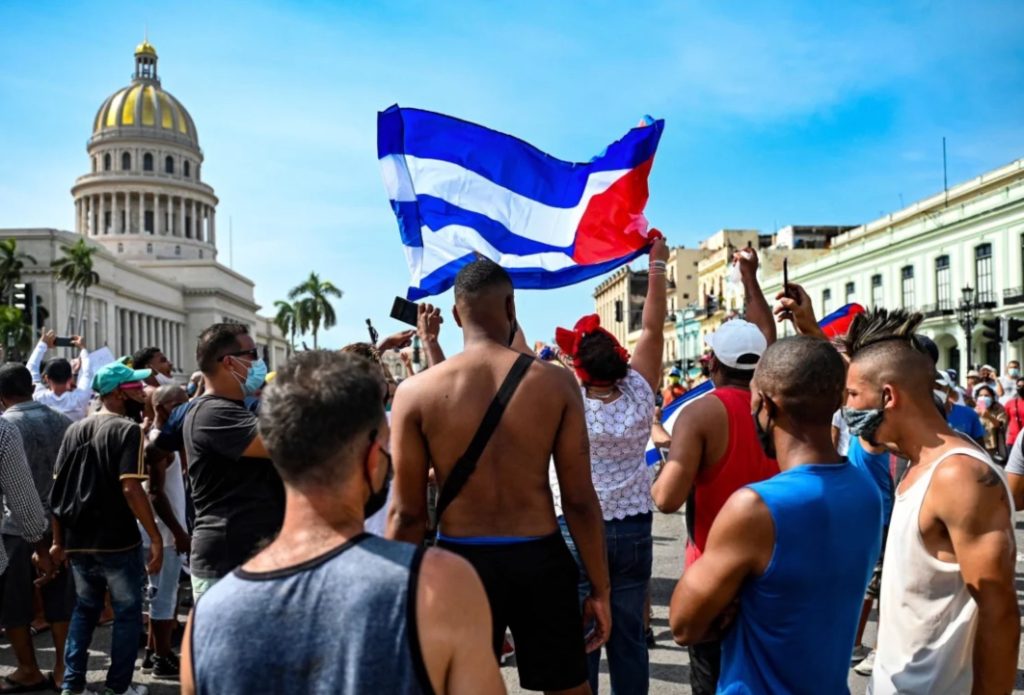
Photo Credit: (AFP via Getty Images)
By: Diana Alonso Roth
On July 11, 2021, the world watched in astonishment as thousands of Cuban citizens took to the streets for the first time in decades to express their grievances against the government. Fueled by discontent over the handling of the COVID-19 pandemic, food shortages, and enduring decades of communist rule, Cuban citizens echoed their frustrations through whispers on social media, uniting to advocate for change. However, nearly three years later, the expected transformation has not occurred, leaving Cubans apprehensive about protesting due to the forceful government responsethat quelled the ‘Patria y Vida’ demonstrations. The prevalence of human rights violations during these protests, including acts of torture, killings, blackouts, and the imposition of unjust prison sentences, underscores the harsh reality in present-day Cuba. Many citizens today find themselves feeling hopeless in a country that restricts their ability to voice grievances, which has led to the most significant Cuban exodus since Fidel Castro assumed power in 1959.
How has Cuba fared in the aftermath of the 2021 Patria y Vida protests? Several Cubans who participated in the demonstrations remain incarcerated, experiencing harsh conditions in Cuban prisons characterized by overcrowding, inadequate food and medical care, and substandard sanitary conditions. Protests persist sporadically in various areas of the island; however, following the government’s violent infringement on their human rights, many individuals are hesitant to express their opinions through demonstrations, living in fear of repercussions. Censorship has reached unprecedented levels, with a significant decline in internet connectivity as the government seeks to hinder the spread of protest-related encouragement and isolate Cubans from both each other and the global community. The ongoing migration from Cuba to countries such as Nicaragua, where the visa requirement for Cuban passport holders has been suspended, persists in 2024, contributing to a decline in the Cuban economy. A climate of fear and constrained expression persists in Cuba, presenting its citizens with a dilemma: endure human rights violations in the familiar homeland or take the dangerous journey to another country for a chance at a new life.
Despite the challenges faced by Cubans in the wake of these protests, a sense of hope persists. The events of July 11, 2021, marked a historic day in Cuban history, representing the largest anti-government demonstration since the 1959 revolution. The government’s reluctance to heed the concerns of its citizens has fueled anger among the Cuban populace. While the prospect of a ‘Cuba libre’ may seem elusive to many, the rising generation of young protestors instills hope for the country’s future, driven by their fatigue with the current government and the prevailing conditions in Cuba.




